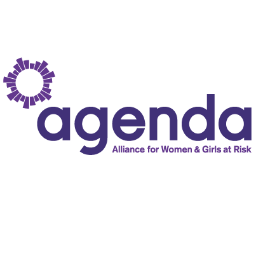Around 1.2 million women in England are living with the impact of ‘extensive’, lifelong physical and sexual abuse and violence, according to research just released for the launch of Agenda, the alliance for women and girls at risk.
The charity reports that women with these experiences are around twice as likely to have post-traumatic stress disorder (PTSD) symptoms as soldiers returning from combat in Iraq or Afghanistan.
Agenda’s report, Hidden Hurt, shows that one in twenty women in England has experienced repeated, serious physical and sexual abuse both as a child and an adult including being raped, being severely beaten as a child by a parent or step-parent, and being choked or strangled by a partner.
Hidden Hurt describes the poor mental and physical health these women face:
- Half (54 per cent) of women with experience of extensive abuse have a diagnosable common mental health condition such as depression or an anxiety disorder
- Half (52 per cent) have a disability that affects their daily life
- One in six (16 per cent) screen positive for post-traumatic stress disorder (PTSD)
- One in seven (15 per cent) have three or more mental health problems
Agenda is highlighting the failure of society to support women with experience of extensive abuse. The report reveals that three quarters (75 per cent) are receiving no mental health treatment.
The charity warns that without proper support, women who have experienced this kind of abuse have very difficult lives. Hidden Hurt shows:
- One in five (21 per cent) women with experience of extensive abuse have been homeless
- One in three (36 per cent) have attempted suicide
- One in three (31 per cent) have an alcohol problem
- A quarter (27 per cent) had experienced a major financial crisis
Women who have experienced this extensive abuse are significantly more likely to be poor with nearly half (46 per cent) in the poorest third of the population.
In many areas, there are no specialist services for women with mental health problems, addictions, or who are homeless. Agenda is warning that many of the non-specialist services women turn to don’t have the knowledge or resources to respond appropriately to the violence they have experienced.
Agenda is calling for better funding of specialist services for women who have experienced extensive abuse, as well as more recognition of issues around abuse in mainstream services.
The charity is calling for leadership from national and local government to make sure women and girls who experience the most extensive abuse get appropriate support.
Agenda’s launch marks the first stage of the alliance’s activities to campaign for change for women and girls at risk.
In response to the findings in its report, Agenda recommends:
- Central and local government must make sure specialist services for women and girls at risk are properly resourced and commissioned–- this should include a central funding pot drawn from different budgets.
- Mainstream services should routinely enquire about and respond to women and girls’ experience of violence and abuse,
- There must be better collaborative working between different professions and services, so women and girls at risk can’t fall through ‘gaps’ in provision.
Agenda is highlighting that the upcoming Violence against Women and Girls strategy provides an opportunity for the Government to act on these recommendations.

